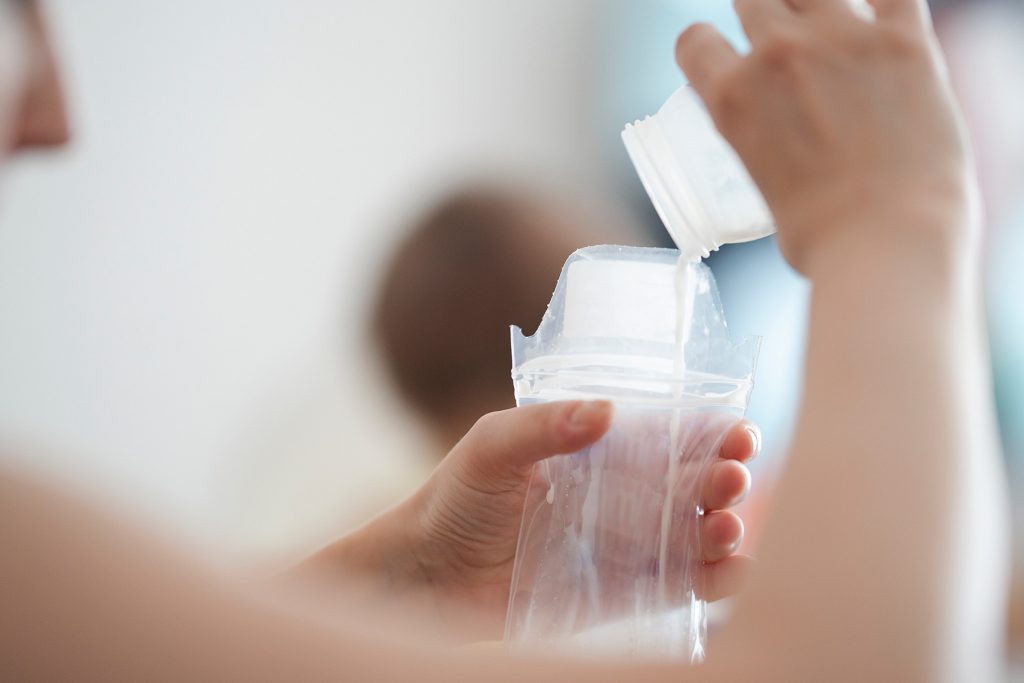
Feeding your baby breast milk is a surefire way to give your child all the proper nutrients they need to grow. From offering a complete form of nutrition to encouraging emotional development, the benefits of breast milk and breastfeeding never end. Whether you’re pumping or full-time nursing, offering a baby breast milk can lead to a lifetime of developmental advantages.
Some moms and babies, however, do not run such luck. Many roadblocks may prevent a mom from producing breast milk and nursing traditionally, including premature birth, stress, and other factors. Additionally, some moms may simply struggle to produce an adequate milk supply. Breast milk offers many disease-fighting perks that babies may miss out on if they do not receive it.
It’s the season of giving, and so many fragile little ones need breast milk. So, why not consider donating your surplus breast milk to a milk bank or family in need? The gift of breast milk is one of the most beautiful presents you can give a family if you produce more milk than your baby requires. Pumps For Mom’s guide on how to donate your breast milk can guide you through the process.
The gift of breast milk may come from different sources. Considering which source to donate to will inform your goals and broaden your understanding of the impact and importance of your gift.
Doing your own research may be perhaps more informal, but moms need community support. This is especially true if they struggle to produce milk, have adopted a child they wish to breastfeed or have a little one that needs extra support. If you feel comfortable offering this aid, talk to local moms, friends or doctors to find a mom who needs help. You should offer any mom interested in your surplus milk full disclosure about lifestyle choices and medications to ensure you are both on the same page. If you are uncomfortable disclosing any risks or unsure whether you are a candidate for donation, you should pursue a milk bank or speak to your doctor or lactation consultant.
Milk banks serve as a middleman between moms and families needing breast milk donations. Doing proper research on a milk bank’s goals, missions, affiliations, and location can help ensure you’re making a donation that feels right, accessible, and ethical for you.
Milk banks all across the country have different eligibility screening procedures to ensure milk donations can be accomplished safely. Once you apply to become a donor, you may be subjected to screenings, including blood tests, interviews, and more. Here are some common traits milk banks require before donating:
As per any eligibility requirement screening, some exclusionary criteria may prevent you from donating breast milk. Some of these include:
If you’ve been approved for milk donation, congratulations! Make sure you have a good, reliable pump in hand when the time comes to donate. Your milk bank should provide proper guidelines to ensure you pump and store safely. However, here’s a general look into what will happen:
You need to have clean hands when you pump or breastfeed. Wash your hands for twenty seconds with soap and water, and avoid touching anything else before touching your pump.
Take apart your pump before pumping for donation. Wash your pump parts in hot, soapy water.
After pumping, it’s time to transfer milk into bags. Carefully transfer the milk so you don’t touch it with your hands. After it’s been transferred, store it immediately.
You’re almost done! Before placing your milk in a freezer, label the bags properly. Include information the bank may find valuable, such as milk ounces, time, and extraction date. To conserve the milk, store the labeled bags in a freezer.
Breast milk helps babies have a great start in life and has the power to nurture little ones. Pumps For Mom aims to facilitate breastfeeding and pumping by offering free breast pumps through insurance. Additionally, we offer a wide range of maternity garments and supportive accessories to give moms the support they need. Fill out our form to see if you qualify for a free breast pump, or contact us today!